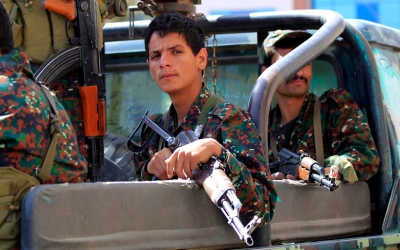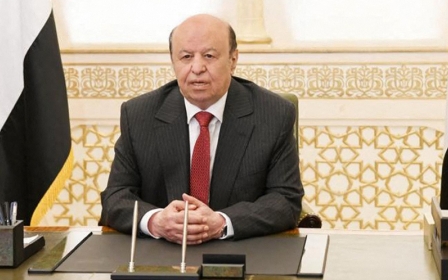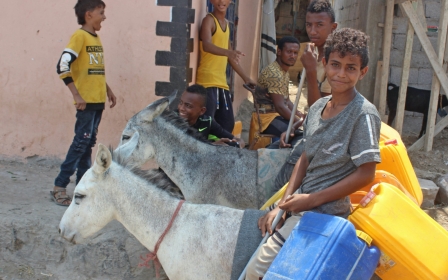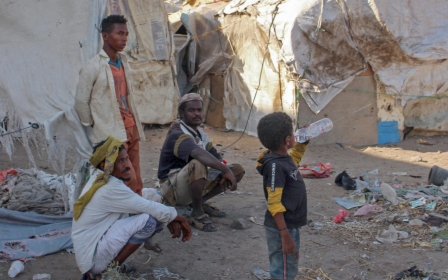Yemen: Saudi-led coalition begins freeing Houthi rebels in peace gesture
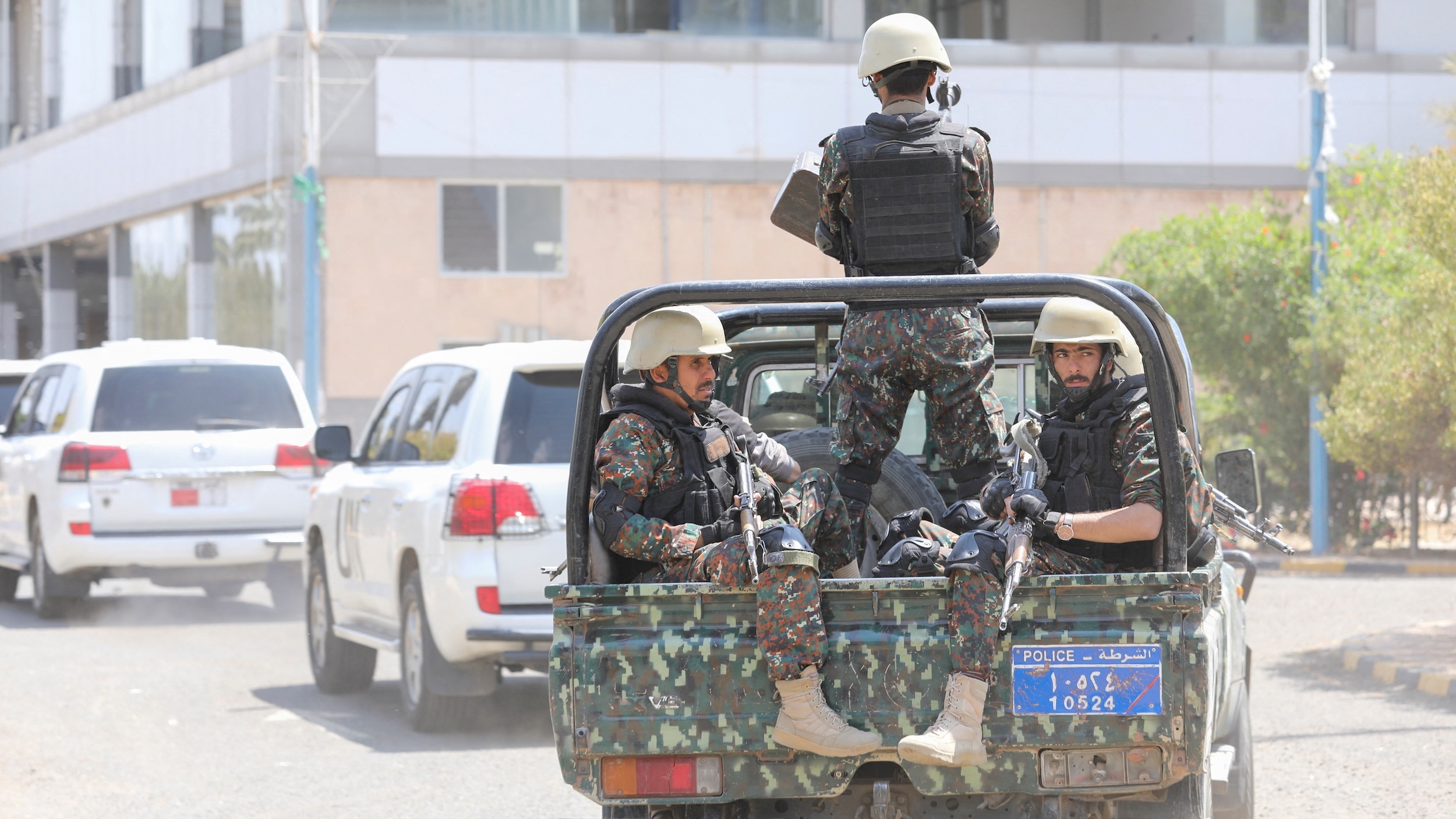
Saudi Arabia is freeing a batch of Houthi rebel prisoners as part of what it says are efforts to bring an end to the seven-year war in Yemen.
The official Saudi Press Agency (SPA) announced on Friday there would be "three stages of air transport of prisoners" to the Houthi-controlled capital Sanaa and the southern port city of Aden.
A video posted by SPA on social media on Friday claimed to show a plane transporting dozens of Houthi prisoners:
A spokesman for the International Committee of the Red Cross (ICRC) told AFP the organisation was "facilitating the transfer of more than 100 Yemeni former detainees from Saudi Arabia to Yemen”.
New MEE newsletter: Jerusalem Dispatch
Sign up to get the latest insights and analysis on Israel-Palestine, alongside Turkey Unpacked and other MEE newsletters
Basheer Omar said there would be three ICRC flights from the city of Abha in Saudi Arabia to Aden, without elaborating on exactly how many prisoners would be let go.
Peace gesture
A truce brokered by the United Nations began on 2 April, marking the first day of Ramadan.
It was the first time in years that the warring sides in Yemen's conflict had agreed to a nationwide truce, which would also allow fuel imports into Houthi-held areas and some flights to operate from Sanaa airport, said UN special envoy Hans Grundberg.
The truce, meant to last for two months and is renewable, has so far not been broken.
On 28 April, the Saudi-led coalition, which has been fighting the Houthis since 2015, said it would release 163 prisoners it had accused of engaging in "hostilities" against the kingdom.
Days earlier, the Houthi rebels said they had released 14 foreign prisoners following negotiations with Oman. The former detainees were transferred from the Houthi-controlled capital Sanaa to Oman's capital Muscat.
The UN-brokered deal is the most significant step yet towards ending a conflict that has killed hundreds of thousands of people and pushed millions into hunger.
The last coordinated cessation of hostilities nationwide was during peace talks in 2016.
New leadership
Former Yemeni President Abd Rabbuh Mansour Hadi announced on 7 April that he would be ceding power to a new presidential council. This move was welcomed by Saudi Arabia, which provided the government with $3bn in aid in response.
The council includes figures linked to the separatist Southern Transitional Council (STC), the powerful Giants Brigade militia, as well as figures linked to the Islah party, a branch of the Muslim Brotherhood.
Information coming out of Saudi Arabia appears to indicate that Mohammed bin Salman is looking to extract his country from the Yemen conflict. Experts believe the move to unify the anti-Houthi bloc is a precursor to securing a final way out, even if it leaves the country mired in crisis for years to come.
The war in Yemen has killed hundreds of thousands of people and devastated the economy, leaving 80 percent of the population of some 30 million people reliant on aid.
The renewable two-month truce has provided a rare respite from violence in much of the country and has seen oil tankers begin arriving at the port of Hodeida, potentially easing fuel shortages in Sanaa and elsewhere.
The truce also involved a deal to resume commercial flights out of Sanaa's airport for the first time in six years and to open main roads leading into the besieged Yemeni city of Taiz, though neither step has been taken so far.
In late March, just before the truce took effect, the Houthis said they had agreed to a prisoner swap that would free 1,400 of their fighters in exchange for 823 pro-government personnel, including 16 Saudis and three Sudanese.
The last such swap was in October 2020, when a total of 1,056 prisoners were released by both sides, according to the Red Cross.
Middle East Eye delivers independent and unrivalled coverage and analysis of the Middle East, North Africa and beyond. To learn more about republishing this content and the associated fees, please fill out this form. More about MEE can be found here.


